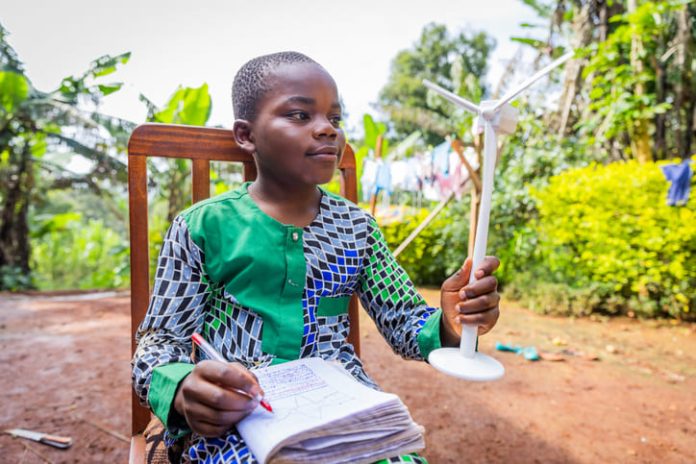The growing interest in Environmental, Social and Governance (ESG) factors among governments and major corporations in sectors such as banking, finance, telecommunications, as well as renewable and non-renewable extraction across Africa signifies a crucial pivot towards sustainable development. This strategic realignment is motivated not only by global sustainability trends, but the necessity for enduring profitability and maintaining a social license to operate within these essential economic domains.
African financial institutions are proactively adopting ESG principles into their core operations. This integration extends beyond mere compliance with global standards serving as a strategic approach to risk management and the pursuit of sustainable investment opportunities. The banking sector, traditionally focused on financial transactions, now leads in funding renewable energy projects and the promotion of green lending practices. Major banks and financial institutions across Africa are prioritizing sustainability management as a critical role to create long-term business value by ensuring their operations and activities create shared prosperity, improve community well-being and deliver positive environmental and social impacts. The emergence of green bonds in countries such as South Africa, Nigeria and Kenya exemplify this transformation, supporting projects with significant environmental and climate benefits.
The telecommunications sector in Africa is uniquely positioned to impact ESG positively due to its vast reach and the integral role it plays in digitalization. Telecom companies are leveraging their technologies to enhance connectivity and access to information to address the ‘Social’ aspect of ESG. The sector is investing in energy-efficient technologies and powering their infrastructure with renewable energy that speaks to the ‘Environmental’ dimension.
Alioune Ndiaye, CEO of Orange Middle East and Africa that generated €7 billion in revenue serving more than 149 million customers with more than 90 million customers in 17 countries. He described digital inclusion and environmental responsibility at the heart of the company’s business strategy proclaiming a firm commitment to achieve net zero carbon emissions by 2040 explaining with a commitment to the creation of direct and indirect jobs, and the development infrastructure through the training of young people and women in digital technology. The reduction of electronic waste through recycling programs is another area where telecom companies are making significant strides.
The extractive industries, both renewable and non-renewable, face are facing intense scrutiny associated with their environmental impacts. There is a growing recognition within these sectors of the need to operationalize ESG principles to mitigate environmental degradation and bolster community relations. Mining companies are increasingly investing in technologies that reduce the environmental impact of their operations. Gary Nagle, Chief Executive Officer at the Swiss multinational commodity trading and mining company Glencore, reiterated a commitment to manage down the company’s energy production portfolio explaining that the socio-economic contribution goes beyond local employment and procurement, payment of taxes and royalties to partnerships and contributions to local communities. The sector’s focus on ensuring the safety and well-being of their workforce, and enhancing transparency in dealings with local communities aligns with the ‘Social’ and ‘Governance’ aspects of ESG.
The European Union is spearheading several development programs across Africa creating opportunities for European companies in sustainable development. The €95.5 billion Horizon Europe initiative that runs from 2021-2027 represents the world’s most expansive research and innovation program and offers European businesses a chance to collaborate on projects that elevate scientific and technological advancements while tackling major societal issues.
The Erasmus+ Program with a budget of €26 billion broadens the scope for European educational organizations to foster digital literacy and strengthen vocational skills through partnerships and projects in various African nations. The Development Smart Innovation through Research in Agriculture (DeSIRA) is dedicated to the promotion of sustainable agricultural practices opening doors for European agri-tech companies to introduce innovations in low and middle-income countries and the African Research Initiative for Scientific Excellence (ARISE) established in cooperation with the African Academy of Sciences (AAS) in partnership with the African Union (AU) provides a platform for collaborations between European and African scientists, driving forward research that can translate into commercial opportunities.
African governments are not bystanders in this transformation. They are active proponents of ESG through the creation of conducive regulatory frameworks that encourage and increasingly mandate the adoption of sustainable practices. Initiatives such as South Africa’s Integrated Resource Plan that aims to increase the share of renewable energy in the national grid and Kenya’s Green Economy Strategy illustrate the proactive steps being taken. The African Union’s Agenda 2063 that emphasizes inclusive growth and sustainable development underscores the broader continental commitment to ESG.
Despite the positive strides, the road to full ESG integration is fraught with challenges. A core challenge is the lack of standardized ESG reporting and agrees measurement metrics adapted to African contexts. This gap often leads to inconsistencies in data and difficulties in assessing the true impact of ESG initiatives. The initial cost of transitioning to greener technologies can be prohibitive for some companies, particularly SMEs.
The opportunities far outweigh the challenges. ESG-focused strategies open up new markets and investment streams such as impact investing which is gaining traction globally. Companies that are early adopters of ESG principles enjoy enhanced reputations and are better positioned to attract international partnerships.
The interest in ESG across Africa’s key economic sectors reflects a broader global shift towards sustainability that reconciles environmental stewardship with social responsibility and governance. This is not just a trend, but a transformative process that presents a sustainable path to economic development and prosperity. The ongoing initiatives by governments and corporations in banking and finance, telecommunications and extractive industries highlight a collective move towards a sustainable future that values people and the planet alongside profit. This strategic alignment, though challenging, promises substantial economic, social and environmental dividends for the continent.
About the Author
 Christopher Burke is a senior advisor at WMC Africa, a communications and advisory agency located in Kampala, Uganda. With nearly 30 years of experience, he has worked extensively on social, political and economic development issues focused on governance, finance and banking, agriculture, extractives, environmental issues, communications and peace-building in Asia and Africa.
Christopher Burke is a senior advisor at WMC Africa, a communications and advisory agency located in Kampala, Uganda. With nearly 30 years of experience, he has worked extensively on social, political and economic development issues focused on governance, finance and banking, agriculture, extractives, environmental issues, communications and peace-building in Asia and Africa.




































































